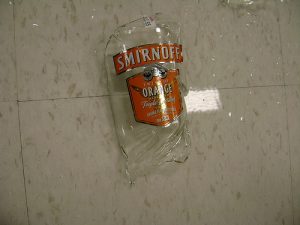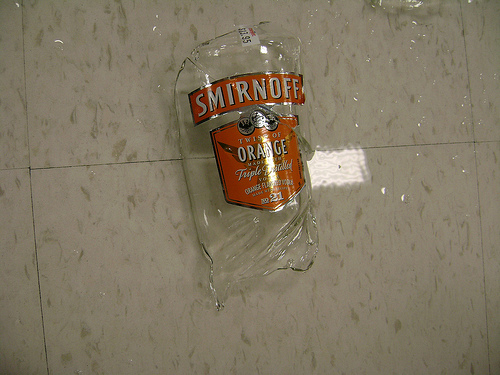Date Posted: June 24, 2011
Print Edition: June 24, 2011
By Alex Watkins (The Cascade) – Email

While few would be surprised to learn that a teen’s friends and social life have a distinct impact on their drinking habits, a recent study has added evidence of an important new factor into the mix: children who witness their parents drunk are twice as likely to one day engage in regular binge drinking themselves. According to The Guardian, the study – conducted by the Joseph Rowntree Foundation (JRF) – also found that the amount of supervision parents exercised over their children significantly affected the likelihood of teen binge drinking.
Researchers surveyed 5,700 youth between the ages of 13 and 16, and discovered that one in five reported having been drunk before they had turned 14. Additionally – according to The Guardian – 52 per cent of 16-year-olds surveyed claimed they had been drunk at one time.
In addition to findings about parental influence, the study reinforced previous claims that a youth’s social life has a strong impact on drinking habits; it reported that students who spent more than two nights per week socializing with friends were twice as likely to engage in excessive drinking, while those who spent over four nights a week with friends were more than four times as likely to do so.
The report’s discoveries led researchers to suggest that “efforts to improve drinking behaviour among young people at a national policy level are best directed at supporting and educating parents.” The report expanded on this by advising: “This should include positive messages for parents about how they can influence their child’s behaviour and stress the importance of parents’ own drinking and what their children see and think about this” – as noted by BBC.
Findings of the study must be interpreted carefully by parents looking for the best possible solution for educating their children on alcohol consumption. As JRF Programme Manager Claire Turner told BBC, “Being introduced to alcohol at a very young age – for example, under 10 years old – makes it more likely that they will drink and drink to excess as teenagers.” However, teens who are introduced to alcohol later in life by their peers are also at increased risk of excessive drinking, making it difficult for parents to strike the ideal balance.
While the report seemed to still leave many questions about teen drinking unanswered, it concluded with the suggestion that reaching out to parents will be an important step in any government efforts to address teen drinking habits – according to BBC.
Diane Abbott, the Labour health spokeswoman, told The Guardian, “This report confirms that the government’s failure to take real action on alcohol pricing is helping to feed an epidemic of teen drinking.
“We should equip young people with the skills they need to resist peer pressure to go out drinking. There are concrete lessons to be learned from overseas, where tried and tested programmes aim to reduce alcohol and substance abuse through classroom-based education. These types of programmes have had excellent success rates.”


